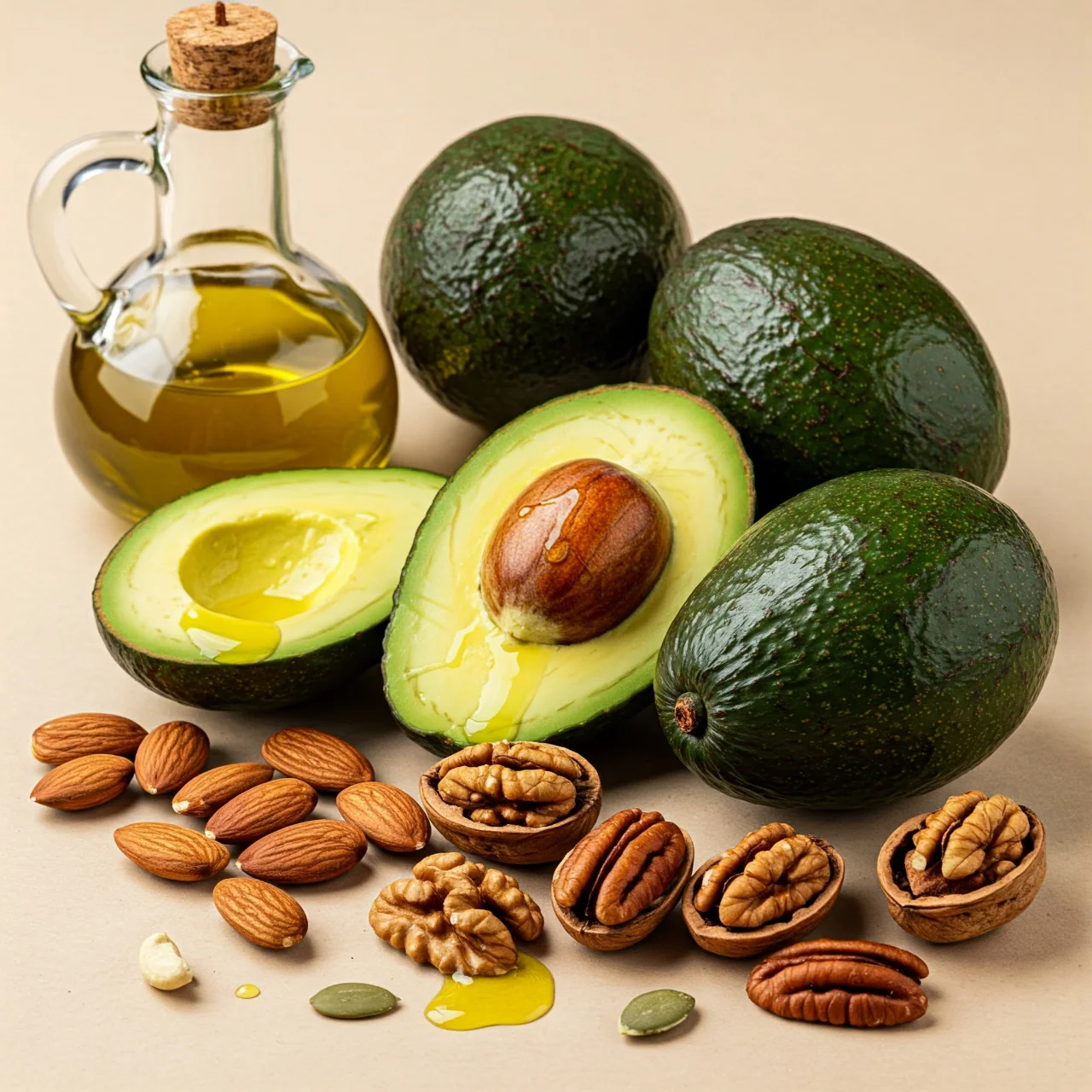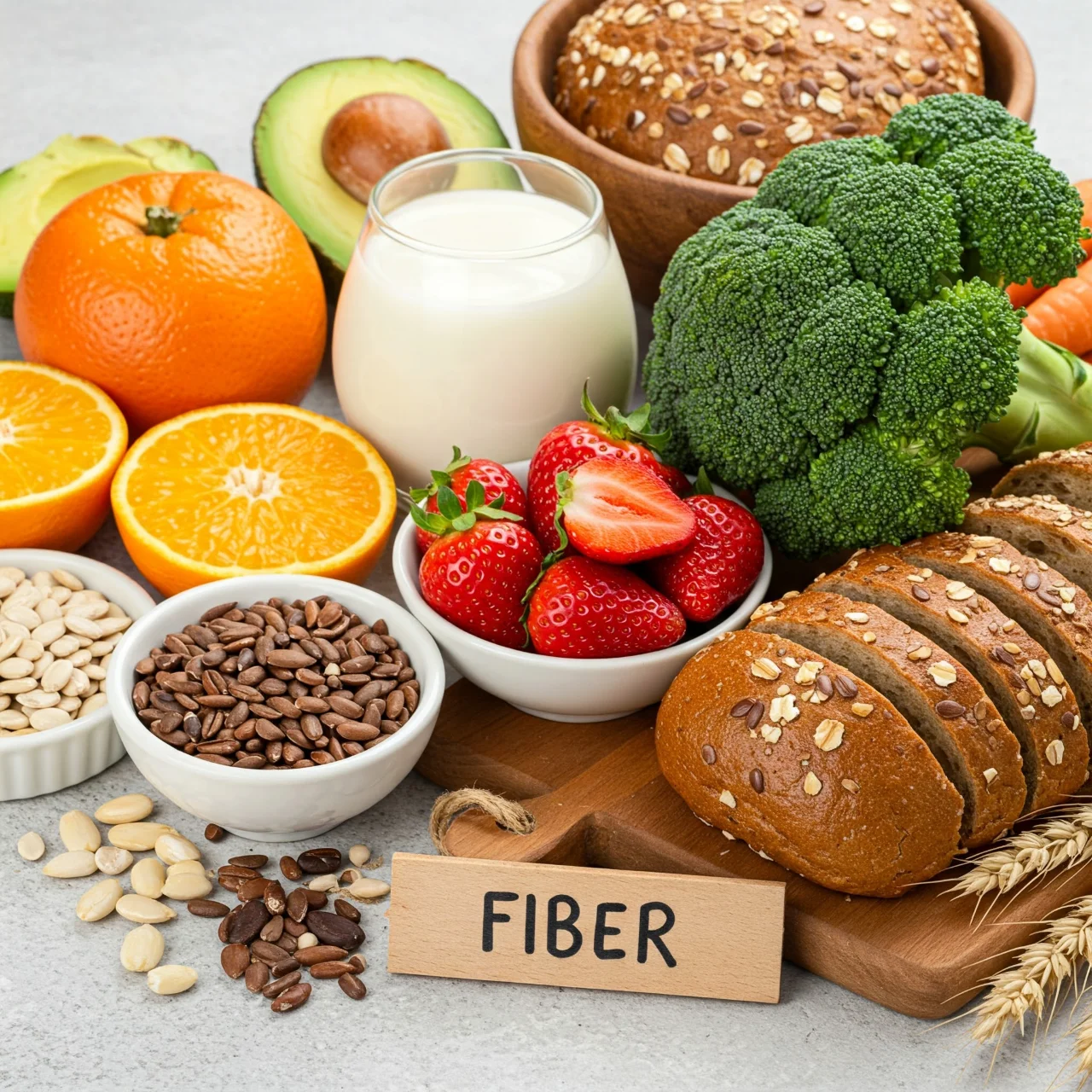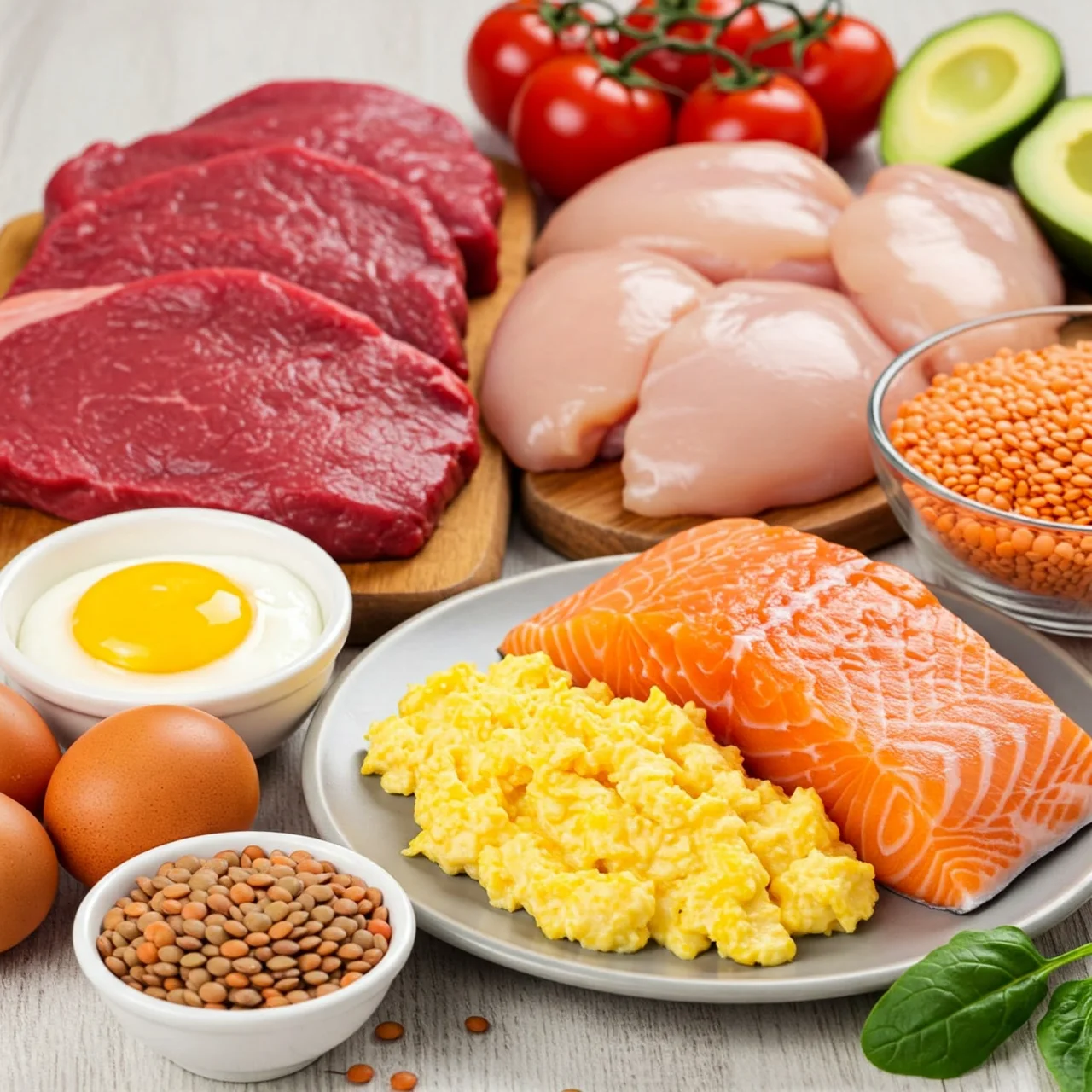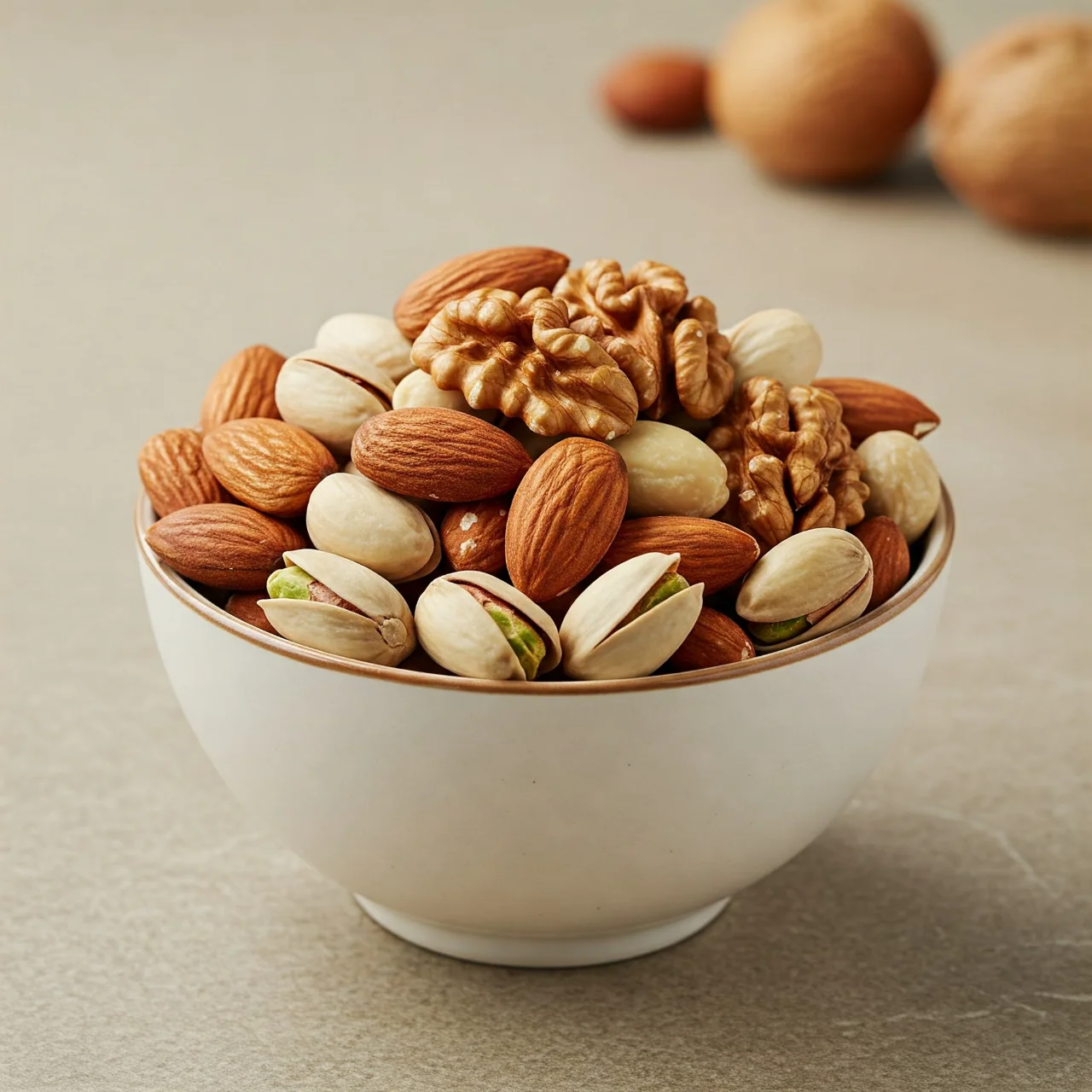20 Lesser-Known Diet Facts That Will Transform Your Eating Habits | Factslook

Discover 20 surprising and lesser-known diet facts that will change the way you think about nutrition and healthy eating. Perfect for anyone looking to improve their diet in 2025!
1. Spicy Foods Can Boost Your Metabolism

Did you know that adding a little spice to your meals can actually help you burn more calories? Capsaicin, the compound that gives chili peppers their heat, has been shown to increase metabolic rate by up to 5% and fat burning by up to 16%. This means that incorporating spicy foods into your diet could give your metabolism a slight but significant boost. So, next time you're cooking, consider adding a dash of hot sauce or some chopped chili peppers to your dish.
2. Eating Slowly Can Help You Lose Weight

In our fast-paced world, many of us tend to eat quickly, but slowing down can have real benefits for your waistline. Research shows that eating slowly can help you feel fuller faster, reducing the amount of food you consume. It takes about 20 minutes for your brain to register that you're full, so taking your time can prevent overeating. Plus, eating slowly allows you to savor your food, making meals more enjoyable.
3. Dark Chocolate Is Good for Your Heart

Yes, you read that right! Dark chocolate, particularly varieties with at least 70% cocoa, is rich in flavonoids, which are known to improve heart health. Studies have shown that consuming dark chocolate in moderation can lower blood pressure, improve blood flow, and reduce the risk of heart disease. Just remember, moderation is key—stick to a small square or two per day to reap the benefits without overloading on calories.
4. Not All Fats Are Bad for You

The idea that all fats are unhealthy is a myth. In fact, your body needs healthy fats to function properly. Monounsaturated and polyunsaturated fats, found in foods like avocados, nuts, and olive oil, can actually improve cholesterol levels and reduce the risk of heart disease. On the other hand, trans fats and excessive saturated fats should be avoided. So, don't shy away from adding a bit of healthy fat to your meals.
5. Drinking Water Can Aid Weight Loss

Staying hydrated is essential for overall health, but did you know it can also help with weight loss? Drinking water before meals can reduce appetite and lead to lower calorie intake. Additionally, water can boost your metabolism temporarily, helping you burn more calories. Aim to drink at least 8 glasses of water a day, and consider having a glass before each meal to help control portion sizes.
6. Fiber Is Your Friend for Digestive Health

Fiber is crucial for maintaining a healthy digestive system, yet many people don't get enough of it. Foods high in fiber, such as fruits, vegetables, and whole grains, can help prevent constipation and promote regular bowel movements. Additionally, fiber can help you feel fuller longer, which can aid in weight management. Aim for at least 25-30 grams of fiber per day to keep your digestive system running smoothly.
7. Skipping Breakfast Can Lead to Weight Gain

Contrary to popular belief, skipping breakfast is not a good strategy for weight loss. In fact, it can lead to overeating later in the day. Breakfast kick-starts your metabolism and provides the energy you need to start your day. Studies have shown that people who eat a healthy breakfast are more likely to maintain a healthy weight. So, make sure to include a balanced meal in the morning to set the tone for the rest of the day.
8. Probiotics Are Essential for Gut Health

Your gut is home to trillions of bacteria that play a crucial role in your overall health. Probiotics, found in fermented foods like yogurt, kefir, and sauerkraut, help maintain a healthy balance of gut bacteria. A healthy gut can improve digestion, boost immunity, and even enhance mental health. Consider adding probiotic-rich foods to your diet to support your gut health.
9. Eating Protein Can Help You Build Muscle

Protein is essential for muscle repair and growth, making it a key component of any diet, especially if you're active. Consuming protein-rich foods like lean meats, fish, eggs, and legumes can help you build and maintain muscle mass. Additionally, protein can help you feel fuller longer, reducing the likelihood of overeating. Aim to include a source of protein in every meal to support your muscle health.
10. Sugar Is Hidden in Many Foods

You might be surprised to learn how much sugar is hidden in everyday foods, even those that don't taste sweet. Foods like bread, pasta sauce, and salad dressings can contain significant amounts of added sugar. Consuming too much sugar can lead to weight gain, diabetes, and other health issues. Always check food labels and opt for low-sugar or sugar-free versions when possible.
11. Eating Late at Night Can Affect Your Sleep

Eating late at night can disrupt your sleep and lead to weight gain. Your body's metabolism slows down at night, making it harder to digest food. Additionally, eating close to bedtime can cause discomfort and indigestion, making it difficult to fall asleep. Try to finish your last meal at least 2-3 hours before bedtime to ensure a good night's sleep.
12. Whole Grains Are Better Than Refined Grains

Whole grains, such as brown rice, quinoa, and whole wheat, are much healthier than refined grains. They contain more fiber, vitamins, and minerals, which can help improve digestion and reduce the risk of chronic diseases. Refined grains, on the other hand, have been stripped of their nutrients and can lead to blood sugar spikes. Make the switch to whole grains for a healthier diet.
13. Eating a Rainbow of Fruits and Vegetables Is Beneficial

Different colored fruits and vegetables contain different nutrients, so eating a variety ensures you get a wide range of vitamins and minerals. For example, orange fruits and vegetables are high in vitamin C and beta-carotene, while leafy greens are rich in iron and calcium. Aim to include at least five different colors of fruits and vegetables in your diet each day for optimal health.
14. Omega-3 Fatty Acids Are Essential for Brain Health

Omega-3 fatty acids, found in fatty fish like salmon, walnuts, and flaxseeds, are crucial for brain health. They play a role in cognitive function and can help reduce the risk of neurodegenerative diseases. Additionally, omega-3s have anti-inflammatory properties that can benefit heart health. Aim to include omega-3-rich foods in your diet at least twice a week.
15. Eating Nuts Can Lower Cholesterol

Nuts are a great source of healthy fats, protein, and fiber, and they can help lower cholesterol levels. Studies have shown that eating a handful of nuts daily can reduce LDL (bad) cholesterol and improve heart health. Almonds, walnuts, and pistachios are particularly beneficial. Just be mindful of portion sizes, as nuts are calorie-dense.
16. Vitamin D Is Crucial for Bone Health

Vitamin D is essential for calcium absorption and bone health. A deficiency in vitamin D can lead to weak bones and an increased risk of fractures. While sunlight is a primary source of vitamin D, it can also be found in foods like fatty fish, fortified dairy products, and egg yolks. Consider getting your vitamin D levels checked and supplementing if necessary.
17. Eating Mindfully Can Improve Your Relationship with Food

Mindful eating involves paying full attention to the experience of eating and drinking, both inside and outside the body. It can help you recognize hunger and fullness cues, reduce overeating, and improve your relationship with food. Try to eat without distractions, savor each bite, and listen to your body's signals to practice mindful eating.
18. Caffeine Can Boost Physical Performance

Caffeine is a well-known stimulant that can enhance physical performance. It can increase adrenaline levels, which prepares your body for physical exertion, and improve endurance and strength. However, it's important to consume caffeine in moderation, as too much can lead to jitteriness and insomnia. A cup of coffee before a workout can give you that extra boost you need.
19. Eating Seasonal Foods Is Better for You and the Environment

Seasonal foods are often fresher, more nutritious, and tastier than out-of-season produce. They are also more environmentally friendly, as they require less transportation and storage. Eating seasonally can also introduce variety into your diet, ensuring you get a wide range of nutrients throughout the year. Visit your local farmers' market to find the best seasonal produce.
20. Hydration Is Key for Skin Health

Your skin is the largest organ in your body, and staying hydrated is essential for maintaining its health and appearance. Dehydration can lead to dry, flaky skin and exacerbate conditions like eczema and acne. Drinking plenty of water helps keep your skin hydrated, plump, and glowing. Aim for at least 8 glasses of water a day, and consider using a humidifier in dry environments.
Comments
Loading comments...